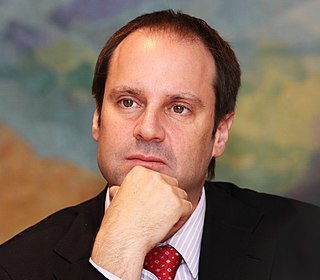A Quote by Astra Taylor
think there's a culture of Silicon Valley that seems to have the attitude that you can have it both ways, that you can be an insurgent but also, ultimately, it's paid for by advertising, when in fact advertising is totally retrograde. Now that's an industry we should be disrupting, and maybe you disrupt it by funding public media. None of this is technological destiny; there are only social choices.
Related Quotes
I think the adoption rate with respect to social media and how companies leverage that varies by the company. Cisco is probably a leader in the space. A lot of times, we actually use virtual ways to communicate our brand and do some of our advertising, first on the social space, then we do on physical advertising.
Advertising and the free society are closely connected. Advertising helps to make a free society remain so by increasing competition, and by helping to maintain the freedom of the mass media themselves. The free society is one where advertising and advertising agencies are likely to be in considerable demand, though it is true that even in a totally centralist society there would still be a need for organisations and people to have access to mass communication media.
Silicon Valley, after all, feeds off the existence of computers, the internet, the IT systems, satellites, the whole of micro electronics and so on, but a lot of that comes straight out of the state sector of the economy. Silicon Valley developed, but they expanded and turned it into commercial products and so on, but the innovation is on the basis of fundamental technological development that took places in places like this [MIT] on government funding, and that continues.
The counsel on public relations is not an advertising man but he advocates for advertising where that is indicated. Very often he is called in by an advertising agency to supplement its work on behalf of a client. His work and that of the advertising agency do not conflict with or duplicate each other.
There are a lot of great technicians in advertising. And unfortunately they talk the best game. They know all the rules. They can tell you that people in an ad will get you greater readership. They can tell you that a sentence should be this short or that long. They can tell you that body copy should be broken up for easier reading. They can give you fact after fact after fact. They are the scientists of advertising. But there's one little rub. Advertising is fundamentally persuasion and persuasion happens to be not a science, but an art.
Observing and understanding the social media phenomenon is one thing-leveraging this trend for advertising purposes is quite another. While most companies recognize the value of social media advertising opportunities, not many have figured out how to execute these kinds of campaigns and the unique risks they entail because of the potential that a viral marketing effort can backfire and actually harm a brand.
I believe that Silicon Valley is truly a place of excellence and the impact of this tiny community on the world is completely disproportionate to its size. We are the undisputed leaders of technological change. But with our abundance of talent and resources, we also have the opportunity to be the pioneers of social change and, ultimately, this may be our greatest contribution.
When I first moved to Hollywood from Silicon Valley, I had some misgivings. But I found that there were some advantages to being in Hollywood. And, in fact, some advantages to owning your own media company. And I also found that Hollywood and Silicon Valley have a lot more in common than I would have dreamed.
I think of Google as a set of overlapping things. It's a consumer platform, consumer phenomenon of which search is its fundamental activity, but there are many other things you can do than search... I think of Google as an advertising company who services the broader advertising industry in the ways that you know.
We tell the for-profit sector, 'Spend, spend, spend on advertising until the last dollar no longer produces a penny of value,' but we don't like to see our donations spent on advertising in charity. Our attitude is, 'Well look, if you can get the advertising donated (at four o'clock in the morning) I'm okay with that, but I don't want my donation spent on advertising, I want it to go to the needy,' as if the money invested in advertising could not bring in dramatically greater sums of money to serve the needy.




































